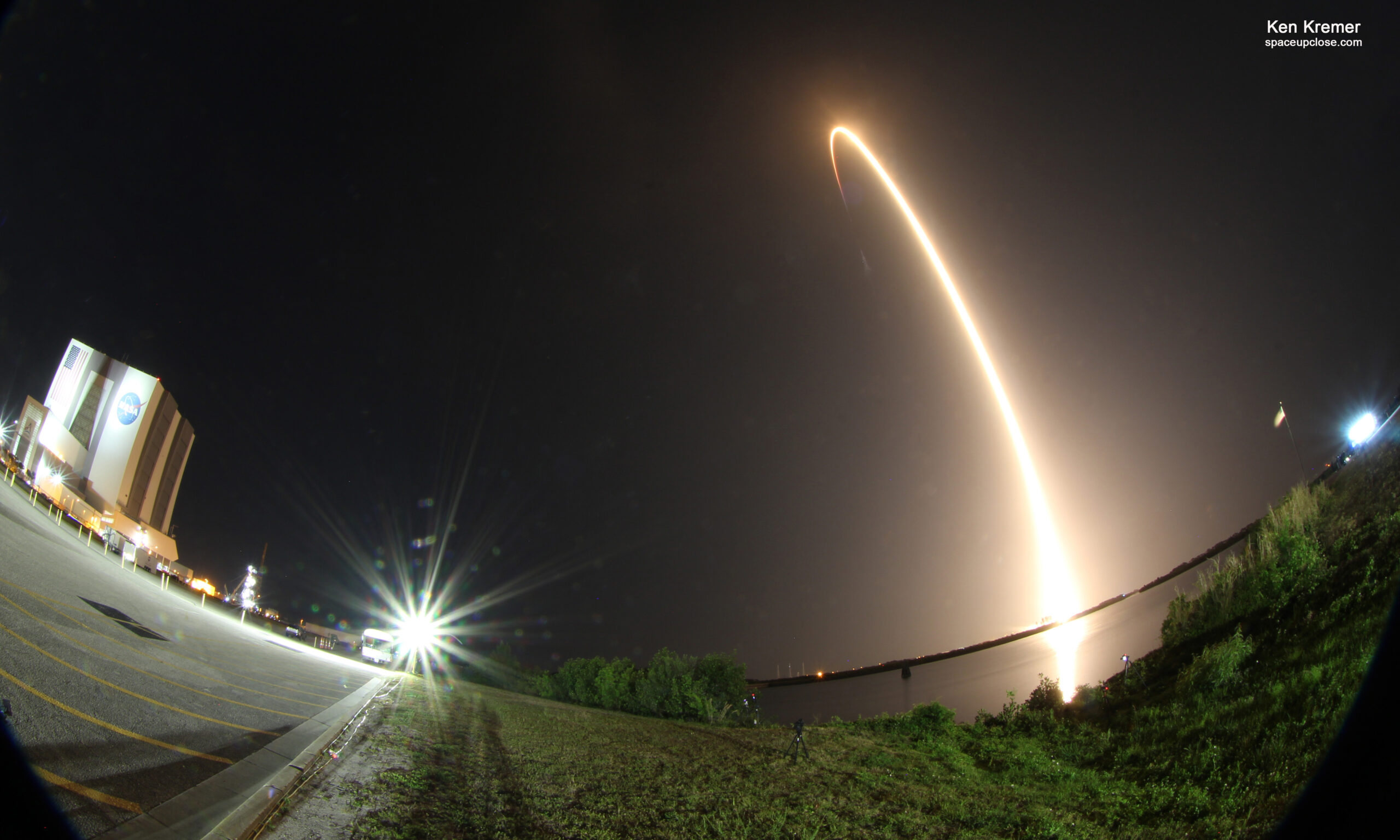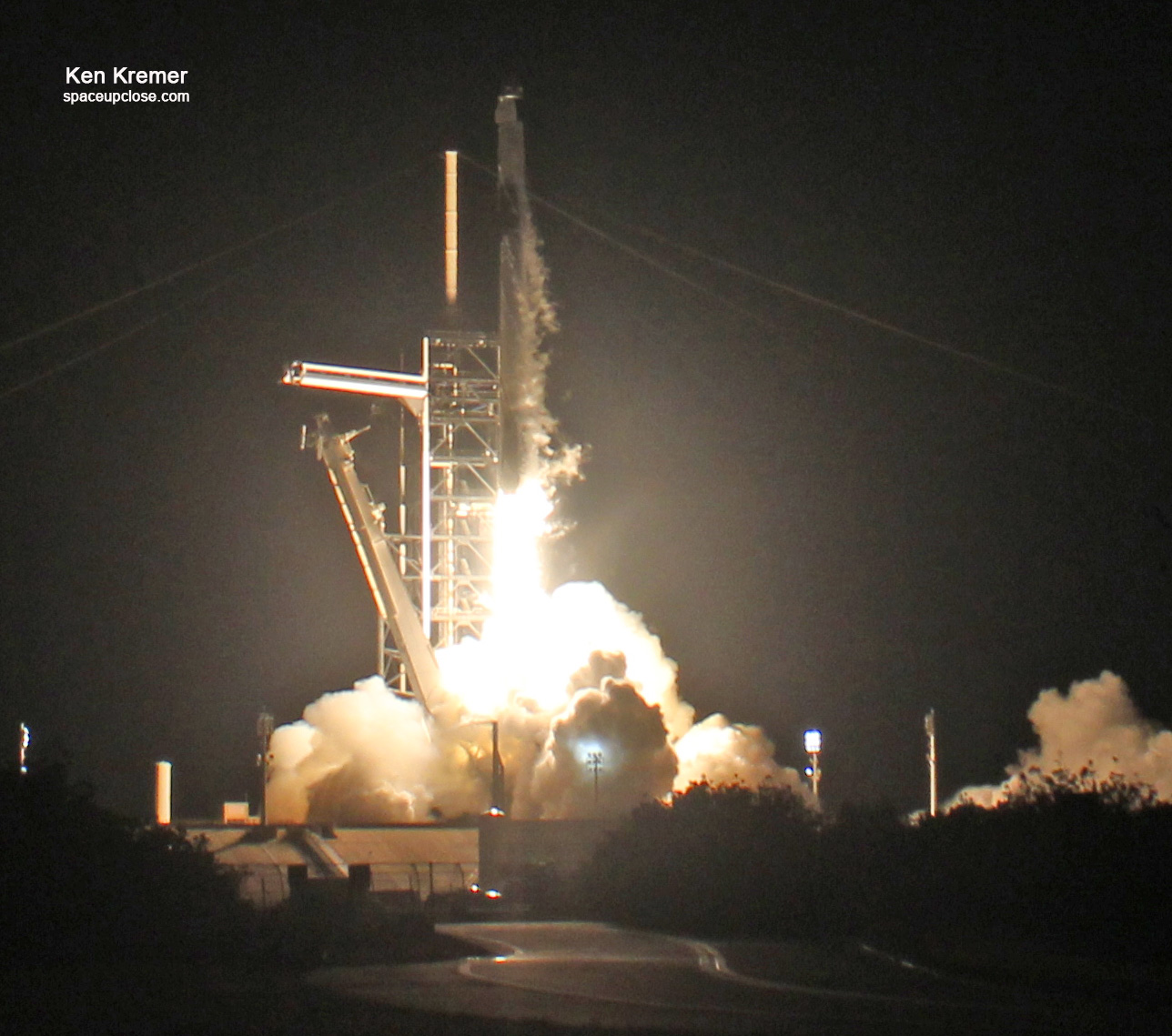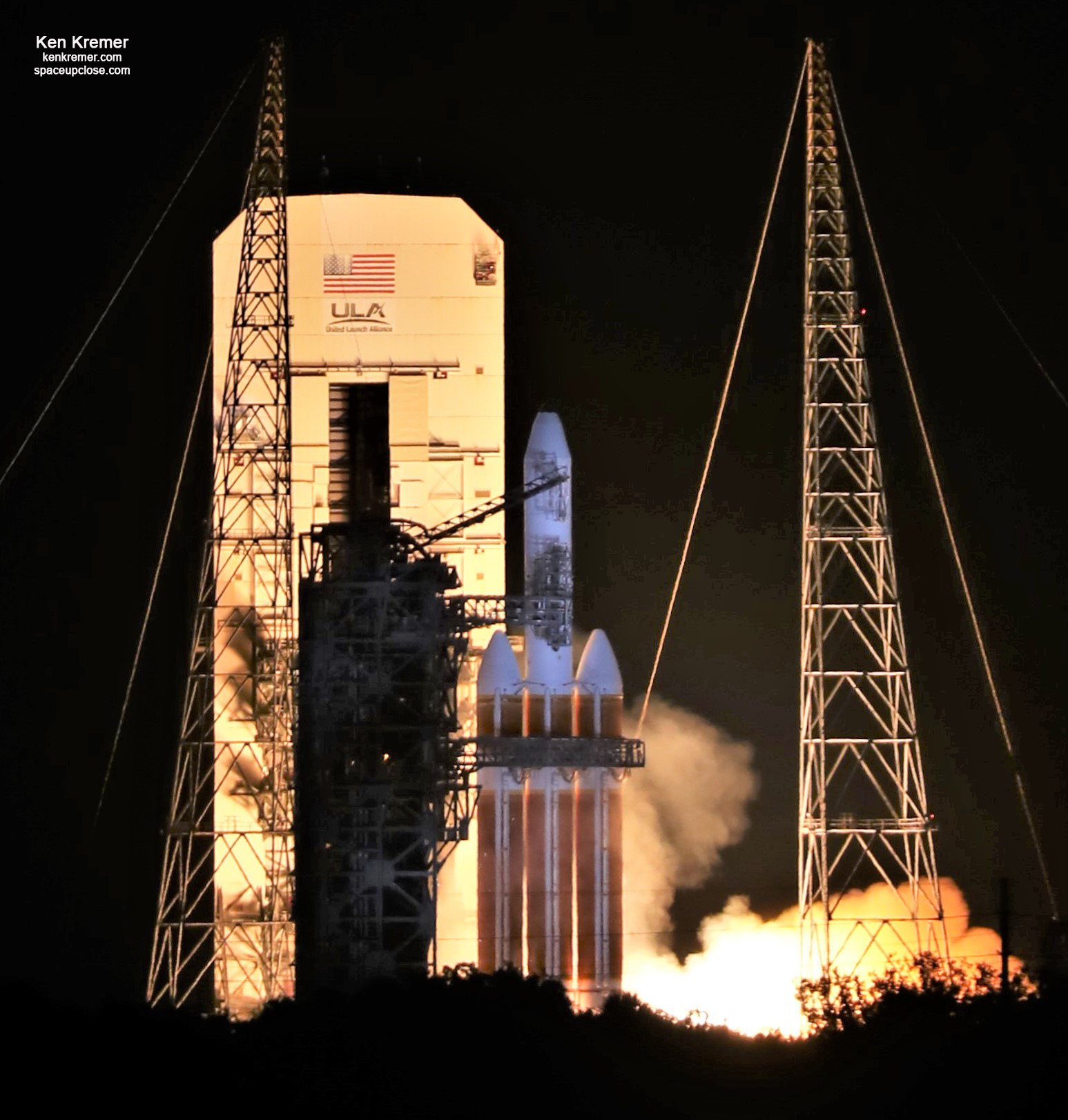
CAPE CANAVERAL AIR FORCE STATION, FL – United Launch Alliance (ULA) engineers have found and fixed the cause of the dramatic dead of night engine hot fire pad abort that caused an unexpected scrub seconds before liftoff of the firms triple core Delta IV Heavy last month and are now targeting a just past midnight launch on Sept. 26 of the mission that aims to deliver a top secret NRO spysat to orbit for the US government.
ULA announced that the root cause of the abort was the result of a ground system regulator internal component failure.
With one of the trio of first stage RS-68 engines firing already for several seconds with orange flames and exhaust spewing from the triple core Delta IV Heavy an automatic abort was suddenly and unexpectedly called just 3 seconds before blastoff by the terminal countdown ignition sequencer at 3:28 a.m. ET Saturday.
Weather was perfect for what was already the third try to launch the triple stick Delta IV Heavy and I was watching from the media viewing site when the ignition and engine cutoff suddenly took place
In fact the ULA launch commentator had even announced liftoff on the live ULA webcast – so we all media momentarily expected a launch – but that was quickly reversed.
All 3 regulators associated with all three RS-68 engines were replaced “out of an abundance of caution” said ULA.
Liftoff of the 23-story tall triple stick United Launch Alliance (ULA) Delta IV Heavy rocket on the NROL-44 mission for the National Reconnaissance Office (NRO) had been re-slated for 12:15 a.m. EDT (0415 GMT) Saturday, Sept. 26, 2020 from seaside Space Launch Complex-37 at Cape Canaveral Air Force Station, Florida – following the earlier scrubs for the hot fire abort and faulty ground launch pneumatic systems.
The launch period runs until 1:35 a.m. EDT (0535 GMT).
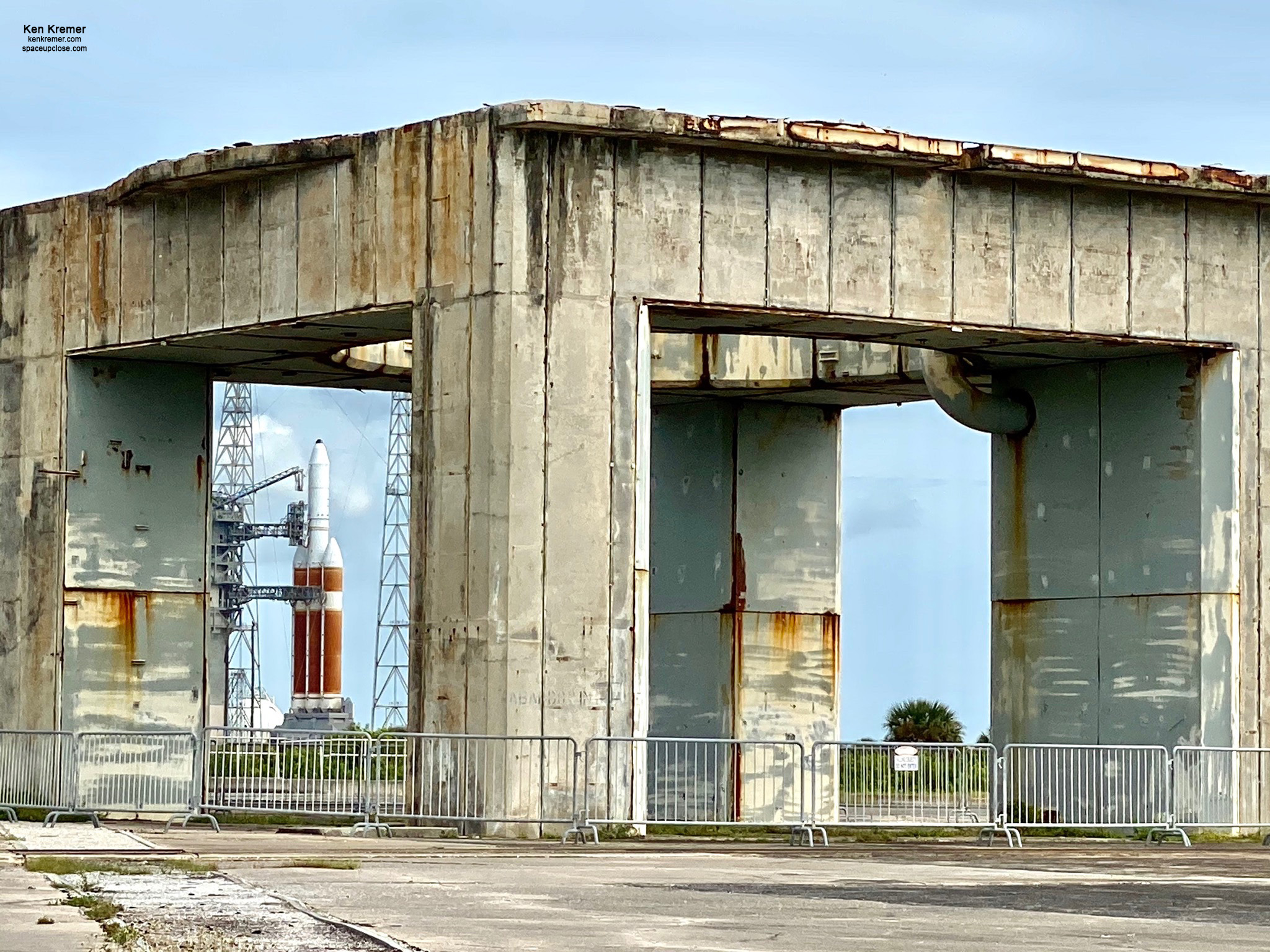
ULA CEO Tory Bruno also revealed the root cause of the abort – and the launch has since delayed to Sept 26 to complete all the engine work.
“Found root cause of the pad side stuck regulator. Torn diaphragm, which can occur over time. Verifying the condition of the other 2 reg’s. We will replace or rebuild as needed, re-test, and then resume towards launch. Mission success is the first priority. Currently, NET 18 Sept.” tweeted Tory Bruno.
Found root cause of the pad side stuck regulator. Torn diaphragm, which can occur over time. Verifying the condition of the other 2 reg's. We will replace or rebuild as needed, re-test, and then resume towards launch. Mission success is the first priority. Currently, NET 18 Sept. https://t.co/iL1nmzniLG
— Tory Bruno (@torybruno) September 9, 2020
“Regulators have been removed, refurbished, tested at @NASAStennis in and around Storm Sally (thank you @nasa), reinstalled at the Cape, and tested. Looking good,” Bruno added.
Regulators have been removed, refurbished, tested at @NASAStennis in and around Storm Sally (thank you @nasa), reinstalled at the Cape, and tested. Looking good. https://t.co/9B5MgkkOxf
— Tory Bruno (@torybruno) September 21, 2020
“The team has reviewed all data and ground support equipment and determined that a ground system regulator internal component failure was the cause of the on-pad abort. Out of an abundance of caution the regulators associated with each of the three common booster cores are being replaced and retested,” ULA confirmed in a press release.
“A regulator takes incoming pressure and adjusts the pressure levels to the correct pressure for system operation,” ULA tweeted in response to a question.
A regulator takes incoming pressure and adjusts the pressure levels to the correct pressure for system operation.
— ULA (@ulalaunch) September 9, 2020
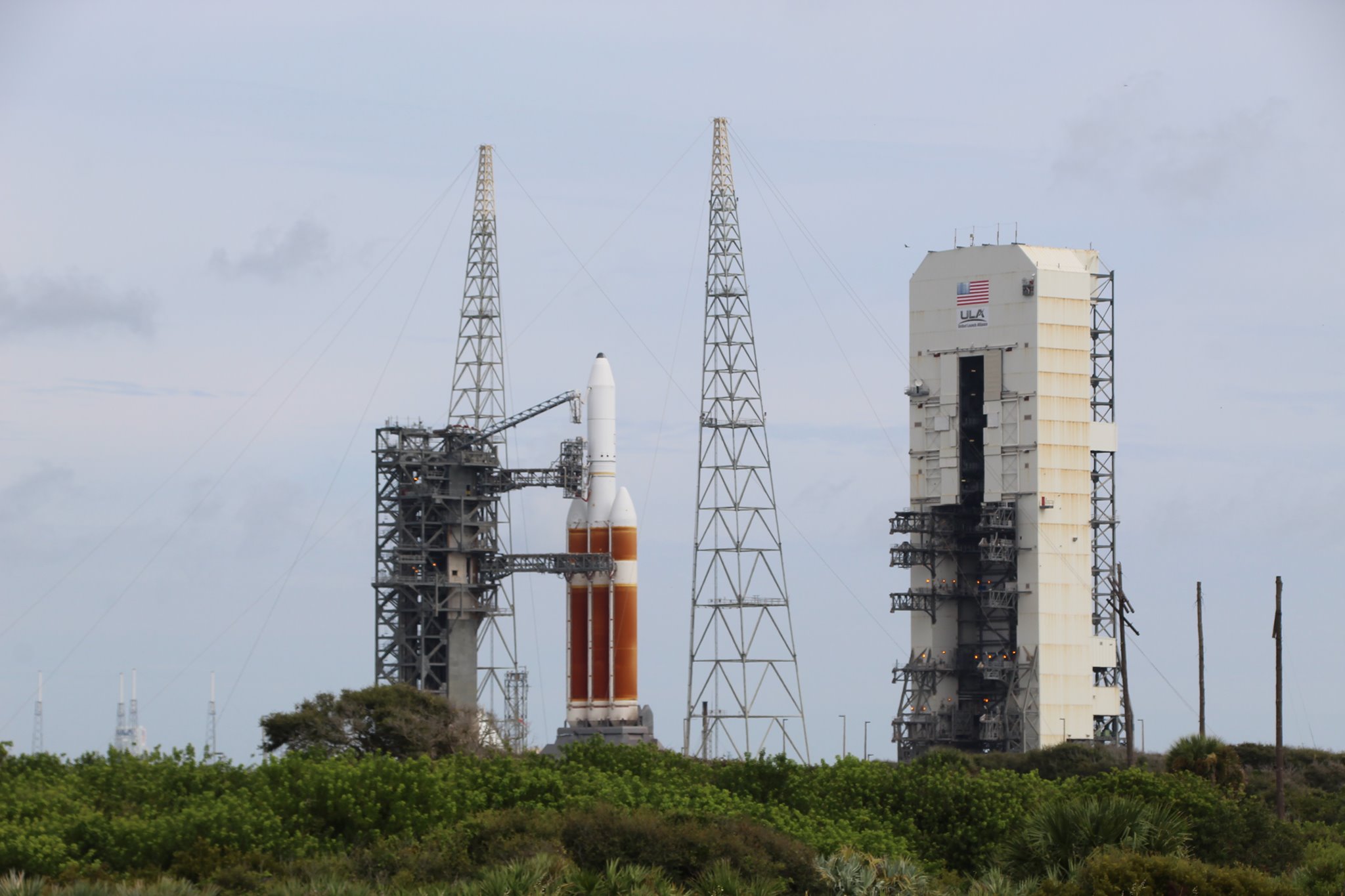
Enjoy our Space UpClose gallery of images from the team of Ken Kremer and Jean Wright.
The weather odds for the midnight liftoff are moderate with 60% GO for conditions at launch time.
The primary concerns are the Thick Cloud Layer Rule and Debris Clouds Rule.
In case of a delay a backup launch opportunity exists on Sunday, Sept. 27.
The top secret NROL-44 intelligence gathering spy satellite payload is owned by the secretive U.S. National Reconnaissance Office (NRO).
Nothing is known about the clandestine NRO payload or its goals.
About the only thing we do know is the rocket will be flying on an easterly trajectory post-launch.
Watch this ULA video for further details about the mission profile:
Overall this will be 141st mission for United Launch Alliance (50:50 joint venture of Boeing and Lockheed Martin) and the 29th for the NRO.
It is the 385th Delta launch since 1960, the 12th Delta IV Heavy and the 8th Heavy for the NRO.
Only 5 Delta IV Heavy launches remain in the ULA manifest.
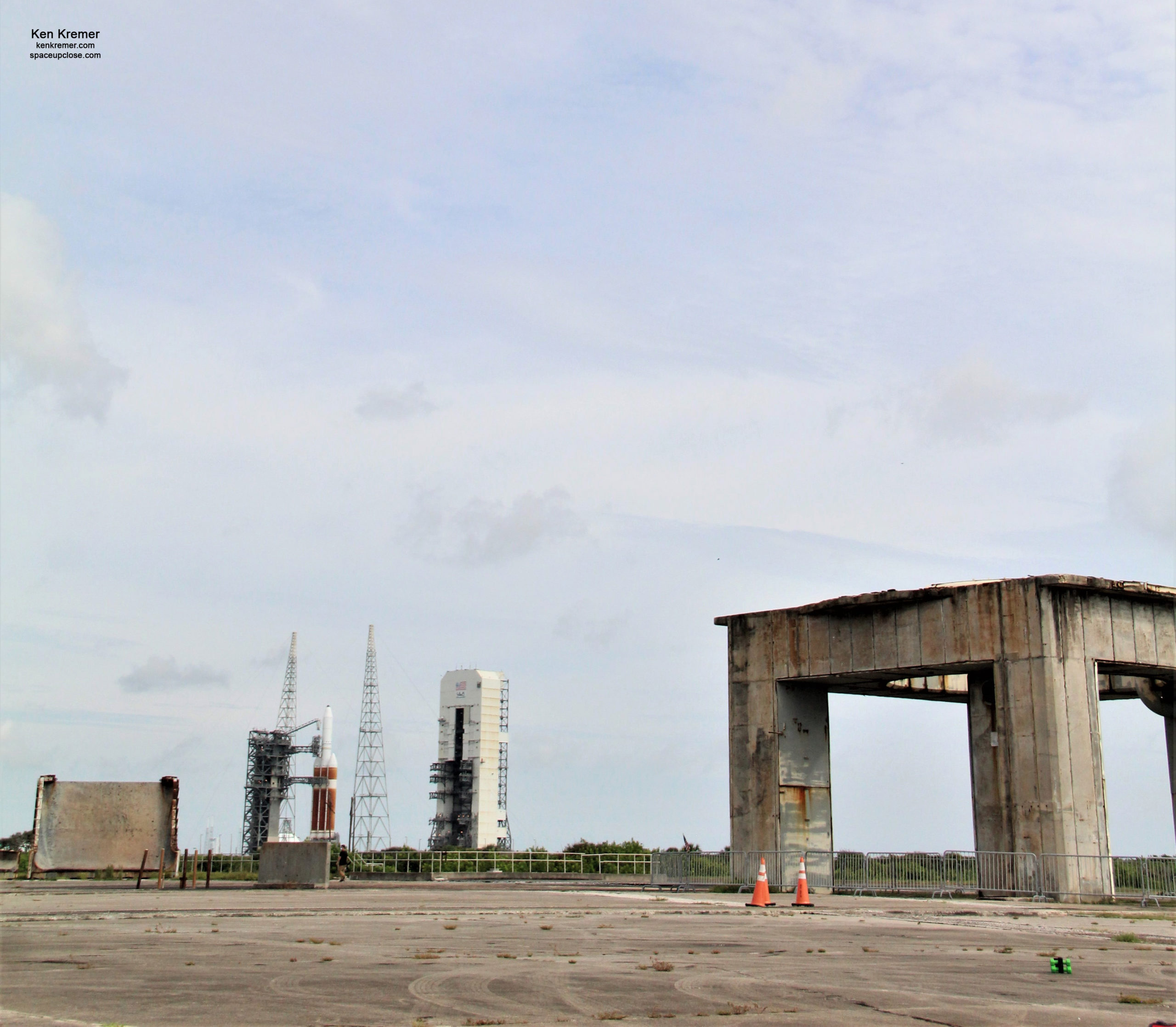
Watch Ken’s continuing reports about Starlink, Commercial Crew and Artemis and onsite for live reporting of upcoming and recent SpaceX and ULA launches including Demo-2, Starlink, X-37B, Solar Orbiter, Mars 2020 and more at the Kennedy Space Center and Cape Canaveral Space Force Station.
Stay tuned here for Ken’s continuing Earth and Planetary science and human spaceflight news: www.kenkremer.com –www.spaceupclose.com – twitter @ken_kremer – email: ken at kenkremer.com
Dr. Kremer is a research scientist and journalist based in the KSC area, active in outreach and interviewed regularly on TV and radio about space topics.
………….
Ken’s photos are for sale and he is available for lectures and outreach events
Please consider supporting Ken’s work by donating at Patreon:
https://www.patreon.com/kenkremer

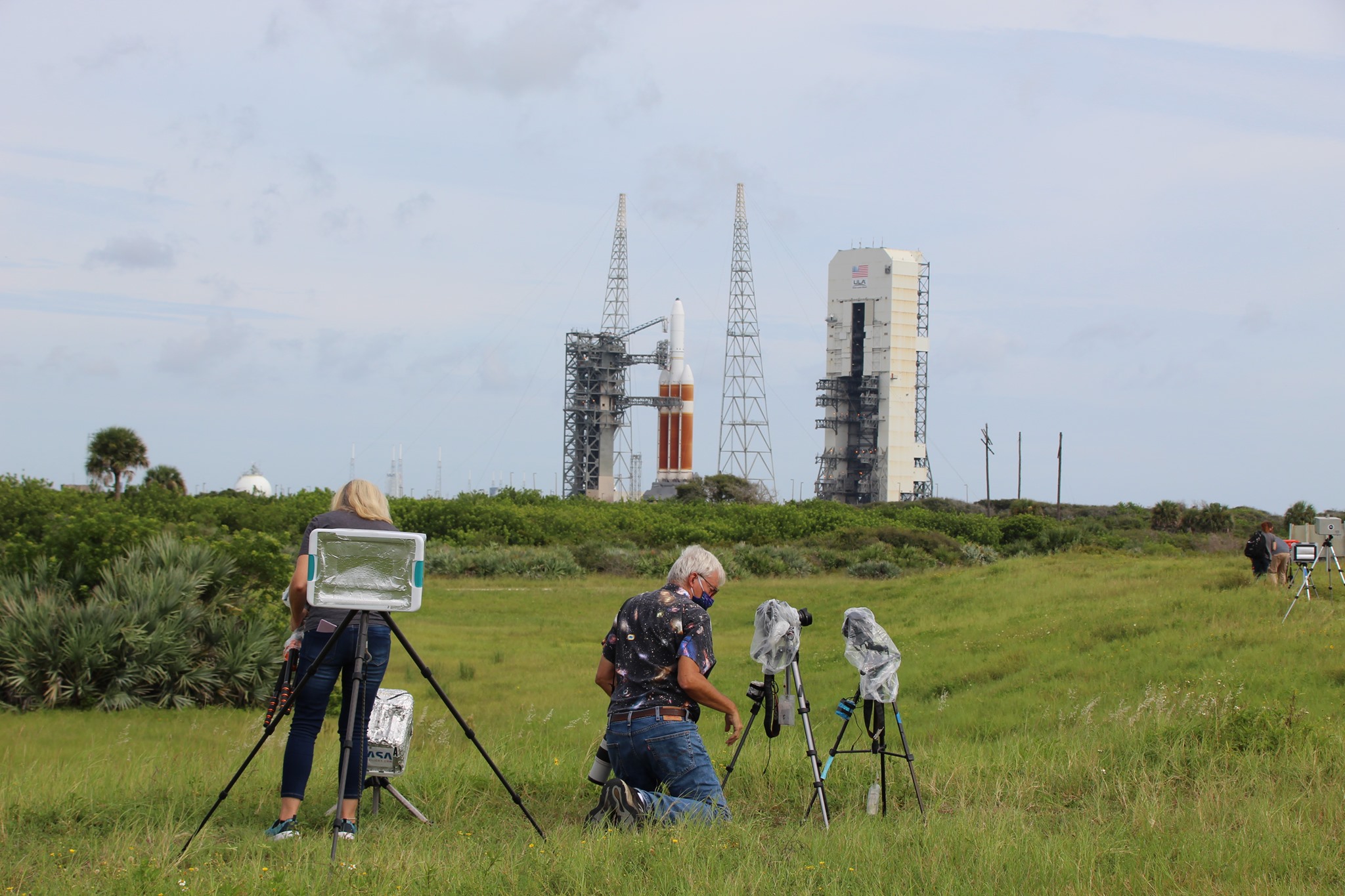 Dr. Ken Kremer, managing Editor of Space Up Close, setting up remote cameras at historic pad 34 to capture launch of ULA Delta IV Heavy at pad 37 about 2/3 mile away on Cape Canaveral Air Force Station. Credit: Jean Wright/spaceupclose.com
Dr. Ken Kremer, managing Editor of Space Up Close, setting up remote cameras at historic pad 34 to capture launch of ULA Delta IV Heavy at pad 37 about 2/3 mile away on Cape Canaveral Air Force Station. Credit: Jean Wright/spaceupclose.com


